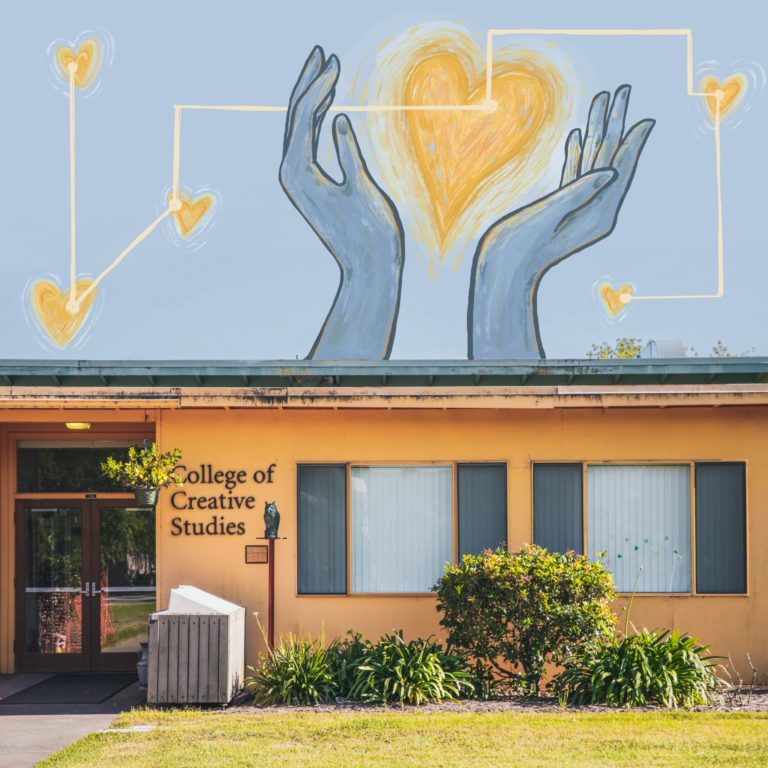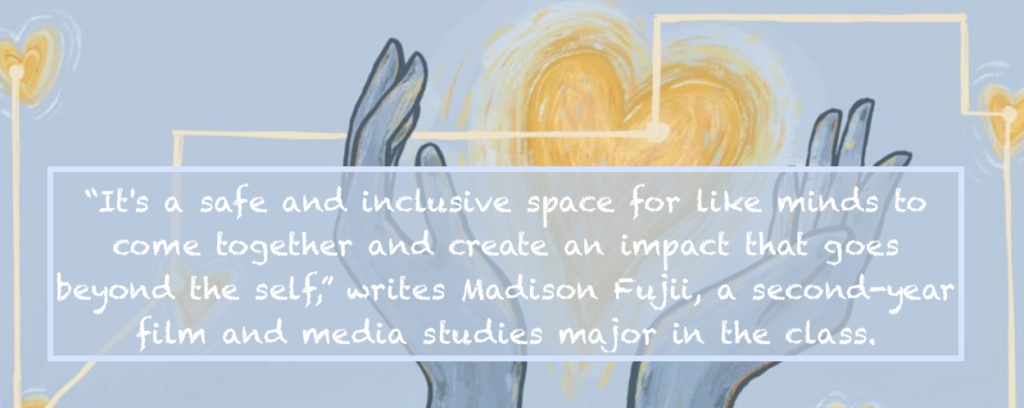
Alice Symington
Contributing Writer
When the UC Santa Barbara (UCSB) community received the news that classes would be moved remotely, professor Jane Mulfinger channelled her concern into creating a new spring course that motivates students to help the community during times of relief.
Titled “Civics in the Time of Pandemic,” the course, which is listed under the College of Creative Studies (CCS) but is open to all majors, boasts 40 students who are enrolled for a greater cause. While the syllabus recognizes the importance of social distancing and self-isolation, it encourages students to engage with creative projects for the good of the community.

Once enrolled, students are assembled into teams based on their common interests, such as food, medical science, the arts, political science, tutoring, and so on. They then share resources and opportunities, volunteer for different organizations or causes, brainstorm ideas to execute their projects, and simply log those hours to satisfy the one-unit credit.
The projects students are creating directly contribute to alleviating the virus-based problems of citizens, handling serious issues like housing and food insecurity.
Third-year global studies and communication major Kenny Morris has been working closely with Isla Vista Housing Crisis Coalition, Santa Barbara Tenants Council, and the UCSB4COLA Social Welfare Committee (organizing university housing) to secure housing for locals.
“It’s really important to us that we are not exclusively [aimed at] students,” explains Morris on how his housing project has reached various local clusters. He’s keeping the community educated by broadcasting bilingual flyers containing local financial resources, tenant-rights fact sheets, and ways others can get involved in aiding the housing situation.
Though there are other projects assisting Isla Vista tenants during this crisis, Morris is focused on advocating a rent moratorium and empowering tenants to organize under a property manager so they may collectively receive urgent needs.
“Although my project changes each week as it develops, this week [I’m] currently gathering student feedback on food, nutrition and cooking,” said Fujii on the fluidity of her work in this class.
In response to specific student needs, Fujii has been developing food-related content videos for “students to interact with and learn from no matter what skill level or accessibility they have.” She’s recently made a video on how to make breakfast burritos and raffled off a grocery gift card to reimburse the cost of the ingredients for students who participated.
These students are addressing both the obvious and subtle issues that people are facing. Emily Beckius, an art graduate student, has been 3-D-printing ear savers — tools to prevent ears from chafing when wearing face masks — from home and sending them out to local hospitals and others across the United States. From sewing intricate masks and donating them to local hospitals to entertaining people with online concerts, fundraising for veterans, and ensuring mental health is a priority in our community, students are reaching all corners of pandemic issues.
“It’s really inspiring to see their work unfold,” Mulfinger says of her students.
“[The most] impressive thing about the course is the passion and selflessness at its foundation,” says Savannah Parison, an academic advisor at CCS. She highlights that while the course does not fulfill general education requirements, students are still willing to work together to help the community.
Parison admits that while CCS is no stranger to hosting classes with “passionate students full of ideas,” it’s the course’s size and scope that makes it unusual for the college.
Indeed, the reasons that students gave for joining the course express the selflessness Parison describes. Many just want to help the most vulnerable in today’s society. Fujii explained that the main reason she took the class was “because [she] felt compelled to respond to a call to action.”
“Not only can I be proactive in my community,” she says, “but, I [can also] feel connected with other students who share that same energy and passion.”
Brian Patton, a first-year sociology major, describes that the class “almost feels like a support group” of like-minded people “doing good for the community on a regular volunteer basis.”
Both Mulfinger and the CCS believe that the course’s template will be useful for other courses in the future. But for now, the class stands as a reminder that people of a society are not alone. Even under the constraints of self-isolation, ideas and projects can still be shared by utilizing tools for communication.










